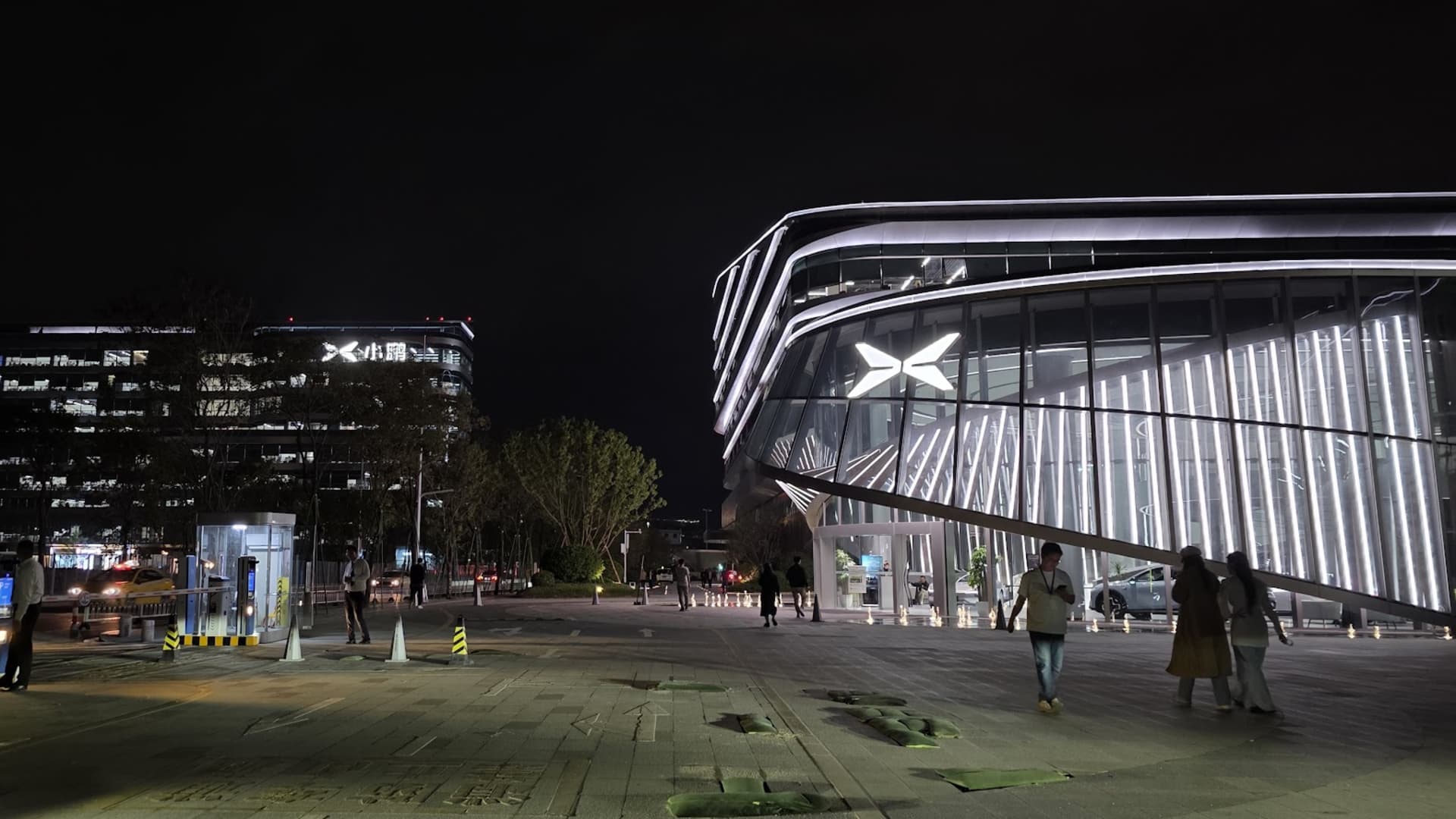Copyright CNBC

Cultural shifts are subtle yet fundamental for any company aiming to succeed beyond its home market. When I visited Chinese electric car company Xpeng 's new headquarters in Guangzhou last week, what stood out wasn't just how shiny it was compared to the building I'd visited last year, but the fluency of its global mindset, down to the small details like accurate English translations in signs and presentations. It went beyond the cursory "innovation" banners often seen in China. Leaders of Xpeng's autonomous driving, robotics and flying car units each delivered 40-minute presentations entirely in English — including their decks — without any translation device. In conversation with reporters, Xpeng founder and CEO He Xiaopeng even declared a ten-year goal to generate half of the company's sales from outside China. He has reason to be upbeat. Xpeng notched 12 straight months of more than 30,000 deliveries each, and exported a small but growing number of cars: 29,000 in just three quarters. That was more than double what Xpeng shipped from a year earlier. I first learned about Xpeng on the sidelines of CNBC's East Tech West conference in 2018, when the Alibaba-backed startup touted its edge in autonomous driving and drew comparisons to Tesla. But Xpeng wasn't able to release regulator-approved driver-assist systems at scale for a few years yet. Deliveries averaged just over 10,000 a month in 2022, and dipped well below that in early 2023 while rivals surged ahead. At a small Xpeng event in Shanghai that I attended in March 2023, there were hints that the startup might have the tech — just not the product Chinese consumers wanted. The event speaker, Xinzhou Wu, head of autonomous driving, soon left to lead Nvidia 's automotive chip business. It was also in early 2023 that Xpeng brought in veteran Great Wall Motor executive Fengying Wang as president to oversee product planning and sales. Her leadership, along with the launch of a more affordable Mona M03 car, helped spark the company's turnaround. Wang remains with Xpeng today. "Of course, it's much better when [the electric car companies have an] English-language interface," said Nick Kolodko, a Shanghai-based auto influencer who has lived in China for over a decade. He noted how some Chinese EV startups in Europe had in-car AI assistants that didn't support local languages. He's since observed some Chinese automakers granting their overseas teams more control over the last 18 months or so, though he said there's still a gap with European rivals in shaping a compelling brand narrative. Critically for Xpeng, it secured a $700 million investment from German auto giant Volkswagen in July 2023. The two companies have gradually expanded the partnership to include technological development. Down the road, "Chinese EV makers can also take a lot of [intellectual property] fees from such [tech] collaboration," said George Chen, managing director and co-chair of digital practice for The Asia Group. "This will be significant because 30, 40 years ago, European carmakers and American carmakers [were] doing exactly the same thing in Chinese markets." For now, Xpeng is taking the first step beyond exporting cars and local production. The company opened its first European factory in Austria in August, and plans to produce tens of thousands of cars there next year, according to Brian Gu, co-president of Xpeng. A former JPMorgan executive, Gu has been with Xpeng since its early days and helped the startup build ties with Wall Street ahead of its U.S. and Hong Kong listings. Xpeng is set to release earnings on Monday. In the first half of 2025, Xpeng claimed to be the best-selling Chinese new-energy vehicle startup brand in Norway, France, Singapore and Israel. "The whole overseas expansion of Chinese companies will be part of the global business landscape for the next five years," McKinsey's Ngai said, "and I have zero doubts about it."



